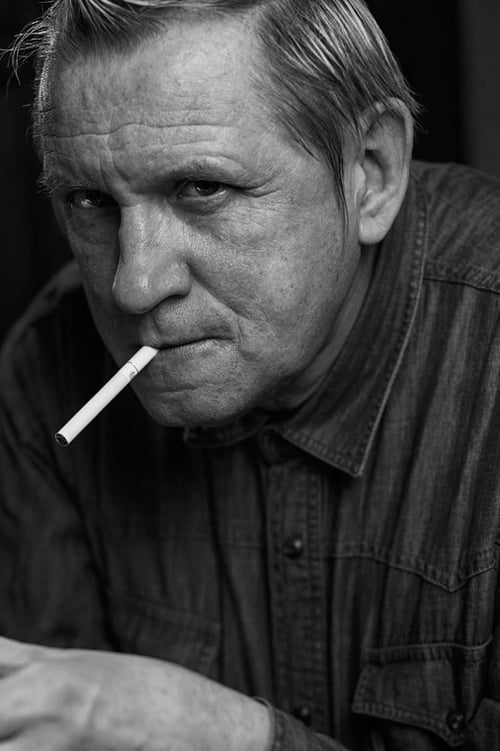
Oleg Garkusha
Birth : 1961-02-23, Leningrad, Russian SFSR, Soviet Union
History
Oleg Alekseevich Garkusha (February 23, 1961, Leningrad) - Soviet and Russian musician, singer and TV host, showman, member of the group "Auktsion". The author of texts and the executor, the poet, the actor.
In 1980 he graduated from the Leningrad Film College. For some time after graduating from the technical school he worked as a projectionist in the Sovremennik and Titan cinemas.
According to Garkusha himself, on the stage he got by accident. In 1985 he was asked to sing a couple of phrases of a song, verses to which he wrote. He sang, everyone liked it. So he became a participant of "Auktsion".
After his arrival in the team, the image of "Auktsiona" radically changed. The band's performances turned into eccentric shows with a buffoonery. A distinctive feature of these shows was the character and recognizability of each character. Especially good was Garkusha in the role of unruly, eccentric punk - "red clown", galloping on stage.
In the group "Auktsion" Garkusha was not only a showman and a vocalist, but also an author of lyrics, along with the poet and musician Dmitry Ozersky. Only if Ozersky wrote the texts to Fedorov's compositions (according to the principle of the libretto), then Garkusha brought his own poems to which the music was then written. The well-known songs of "Auktsyon", laid on the verses of Garkusha, are "Money is paper", "Wolf," "Airplane", "Pioneer" and "Bird" written by Garkusha in 1991 in the days of the August putsch. Album "Ass" of 1990 consists almost entirely of songs on Oleg's poetry.
Oleg Garkusha played in the films: "The Burglar" (1987), "The Presumption of Innocence" (1988), "Khrustalev, the car!" (1998), "I Want" (2012). Garkusha also played the role of the Crocodile in the staging of "The Stolen Sun" by the "KS" group.
In 1991 he participated in the concert "Rock Against Terror". At one time, Garkusha tried his hand at becoming a public figure when he headed the "Youth-Public Committee for the preparation of the 300th anniversary of the city".
Garkusha conducts a weekly program on the night air of Petersburg television. Another sphere of Oleg's activity is work in the club "Garkundel", which was located in the cinema "Spartak".
One of the organizers of the festival "Windows Open!".
Oleg Garkusha is the author of several collections of poems. The first, "The Boy as a Boy", was released in 2001. Also, the rock musician released the second book of poems - "The Crow". (Wikipedia)

Evgeniy Evtushenko
Yekaterinburg of the 90s. A company of young poets, including the most talented — a junior researcher at the Institute of Geophysics Boris Ryzhy, wanders through the cold and dangerous streets of the city from party to party. Ironic and friendly, he can negotiate with local brothers with equal ease, drive to Moscow for the "Anti-Booker" award, fight at the stall and crash into the department.

Single mother Maria (Daria Ekamasova) lives with her son and daughter in a science city, which is being prepared for liquidation. She believes that her physicist husband, who disappeared six years ago during a scientific experiment, is somewhere nearby — just in another dimension. A former colleague of her husband (Vladimir Seleznev) arrives in the city in search of the missing person's records, and Maria has a boyfriend-trucker Stas (Nikolai Klyamchuk), ready to take her away with her children and start a new life together. Faced with a choice, a woman can not decide to leave her invisible husband.

Father Alexey (a member of the Auctioneer group Oleg Garkusha), an elderly, eccentric and kind priest, spends his days alone, except for visiting his sick brother and his daughter. One day he receives an assignment to visit a deaf girl Violetta (Vasilisa Perelygina) in prison, falsely accused of setting fire to a church. When Father Alexei recognizes her as an orphan, whom he baptized as Barbara in infancy, a new meaning appears in his life.
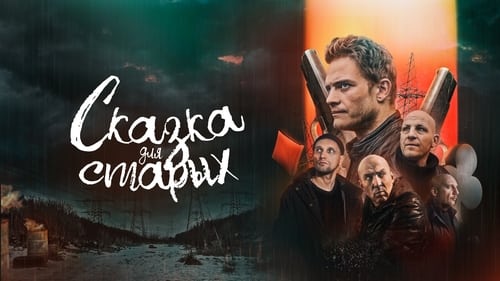
One morning, the criminal authority Dad convenes three "sons" and tells the latest news. Everyone remembers how three years ago, the keeper of the regional communal Mule ran away, taking the money. Also, everyone remembers how he was found, punished and buried. And the news is like this. Yesterday Mulya, alive and well, was seen in three cities at once: St. Petersburg, Novosibirsk and Rostov. Dad sends "sons" to these cities to scout out what's what. For each of them, the journey will not be the easiest.

Roma lives in a provincial town with his girlfriend Masha. After studying at the Faculty of Foreign Languages, he cannot find a job in his specialty. Constant problems in his personal life and professional disorder put more and more pressure on the guy every day, and in the end he faces a choice that will radically change his life.

In Petersburg during perestroika there are two people, Alya and Nika. She is a little funny Petersburg intellectual; he is a French architect. They cannot live without each other, but they cannot together, either in the ancient Lyon castle, or in her communal apartment inhabited by colorful neighbors. Next to Alya is her childhood friend - Mitya, whose love she does not notice. He uses Ali's ridiculous mistake and Niki's jealousy to separate them for years.


Slava
This is Peter. Not Petersburg, not Leningrad - namely, Peter. A city of big ambitions and opportunities. As a rule, unrealized. Often they joke that there is a particular climate to blame. As if he makes us all a bit lazy and unhurried, and turns the city into an endless northern Magnan. But let's be honest: if the weather was good here, you would have moved here. So thank you, Lord, for the right climate! Peter is first of all people. No museums, no cathedrals or movable bridges. People - this is the present. They fill the city with meaning. Make it alive. Rock musicians and street artists, businessmen and careerists, conductor, cooks, officials, urban madmen, just visiting. Everything is interesting here. Uneasy ... All yours. City swallows.

Himself
Many many words have been written and a few ingenious TV documentaries have been filmed about the great Russian rock band Auktyon ("Аукцыон"), which recently celebrated 30 years of playing music. Everything is completely different in the case of the film Encore: it took seven years for the director, Dmitry Lavrinenko, to make it; he needed just that amount of time to capture the wayward grace still preserved by Fyodorov, Garkusha, Ozersky and their associates. If you look behind the powerful music facade, you find not a story of a band but chronicles of a voyage aimed at incredible, incomparable music. Encore shows how the songs which are now known by heart were composed; it also shows things generally left aside: pieces of everyday life, tour diaries, conversations, including the key phrase: "You should not look at the liberty too much, you might feel dizzy."
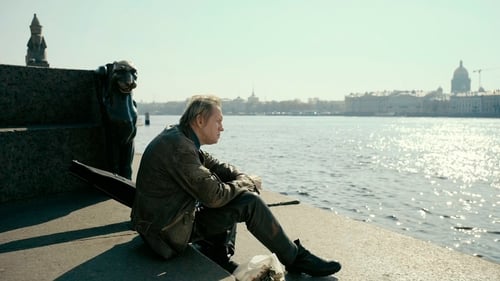
Oleg
Five passengers - the Bandit, his friend Matvei, Matvei's old father, the Musician, and a young woman - race along an empty road in a big black jeep, searching for the Belfry of Happiness which, according to hearsay, lies somewhere between St. Petersburg and the town of Uglich, near a deserted nuclear power station. The Belfry takes people, but it does not take everyone. Each of the five passengers believes that he or she will be chosen.
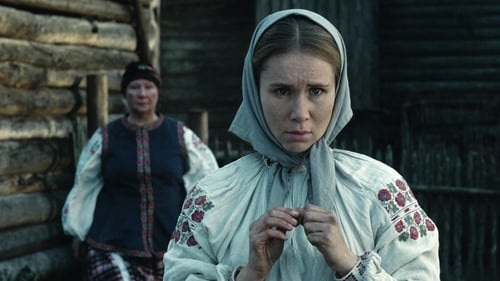
Pilgrim
This story unites the destinies of the landowners and their servants, and is considered to be one of the most complete portraits of the Russian life in the late XIX century. It takes place in Dry Valley, a village owned by the noble family of Khrushevs. The story tells about Natalia, a young and naive girl who serves in their country house. We see and experience her love, dedication to her masters, mysticism, exile, betrayal and faith, while the Dry Valley is falling to pieces, slowly but inevitably, as well as the lives of its inhabitants.
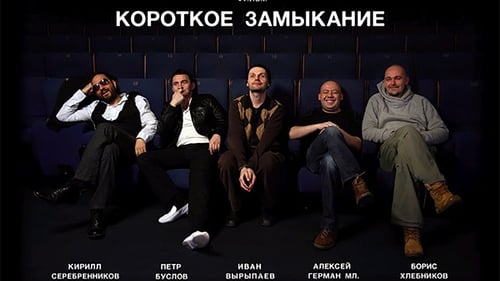
Five short love stories, which become a statement of the directors about love. A shoemaker, a reporter, a pavement hooker-in, a psychiatric patient and a young man released from prison are the main characters of the film, heroes in a time of no heroes. All of them have the important qualities of being openhearted and not afraid of loving.

Хохотун
The film tells the story of a young Russian in the early 90s, trying to escape the army in a psychiatric clinic. He's released years later, after intensive compulsory treatment. Has a documentary film maker he gets involved in the Chechen conflict, where he meets his own apparent death. He recalls his life and realizes it mirrors that of his whole generation.

Young Alisa is fed up with her life in Moscow, and moves to St. Petersburg. Her roommates in the collective flat are two junkies, Vel and her boyfriend Valera the Dead Man. First they fight, but soon the two women form a friendship. Together they even go after the Petersburg underworld when Dead Man is abducted because he can't pay his debts.

The life of a characters of this movie can be described as a swing - up and down, up and down; each day, each week...
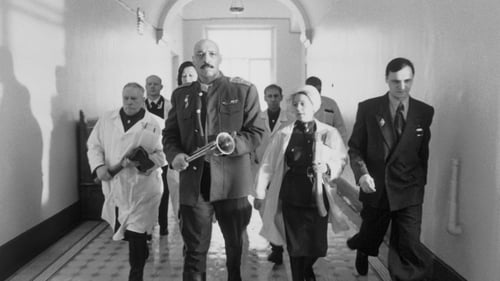
Military doctor General Klenski is arrested in Stalin's Russia in 1953 during an anti-Semitic political campaign accused of being a participant in so-called "doctors' plot".

An attempt at a parody comprehension of the clichés and techniques of the Soviet adventurous comedy genre of the 50s-70s. This is a story about three heroes who return to their home city after escaping from prison. Truthfulness and sincerity help the characters find their place in the changed system.

himself
Documentary film for german TV about rock music in Soviet Union. Featuring: "Мистер Твистер", "Ва-Банкъ", "Чудо-Юдо", "Женская Болезнь", "Ночной Проспект", "Аквариум", "Ноль", "Аукцыон", "Телевизор", "АВИА", "Звуки Му". In 1989 an album with recorded soundtrack was released.

Slava
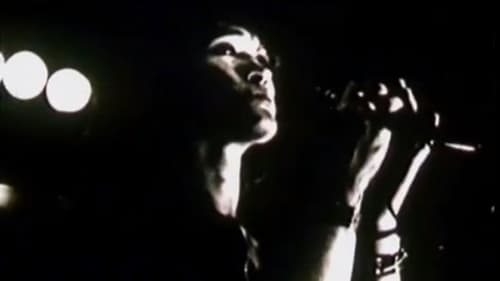
himself
Documentary — featuring both interviews and live footage — about underground rock music in Russia, during the last years of the Perestroika.
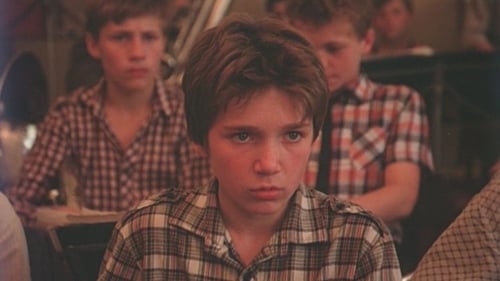
Oleg
With a brother dedicated to punk rock stardom at any cost and a drunken father who chases skirt between robotic dancing lessons from the TV, young Senka stands as much chance of nurture as the hero of Truffaut's 400 Blows. The amazing thing about Ogorodnikov's film is that it was made in Russia. Clearly, plenty of Soviet teenies share the nihilistic feelings of their Western counterparts, and the extensive footage of safety-pin chic at concerts perhaps points to a sound export instinct on the director's part. Senka's brother Kostya is under pressure from Howmuch, a very heavy rocker, to steal a synthesiser from the Community Centre, so to protect him Senka steals it himself. The story occupies little more space than the music, but the performances are splendid enough to lodge Senka's predicament in the heart.












